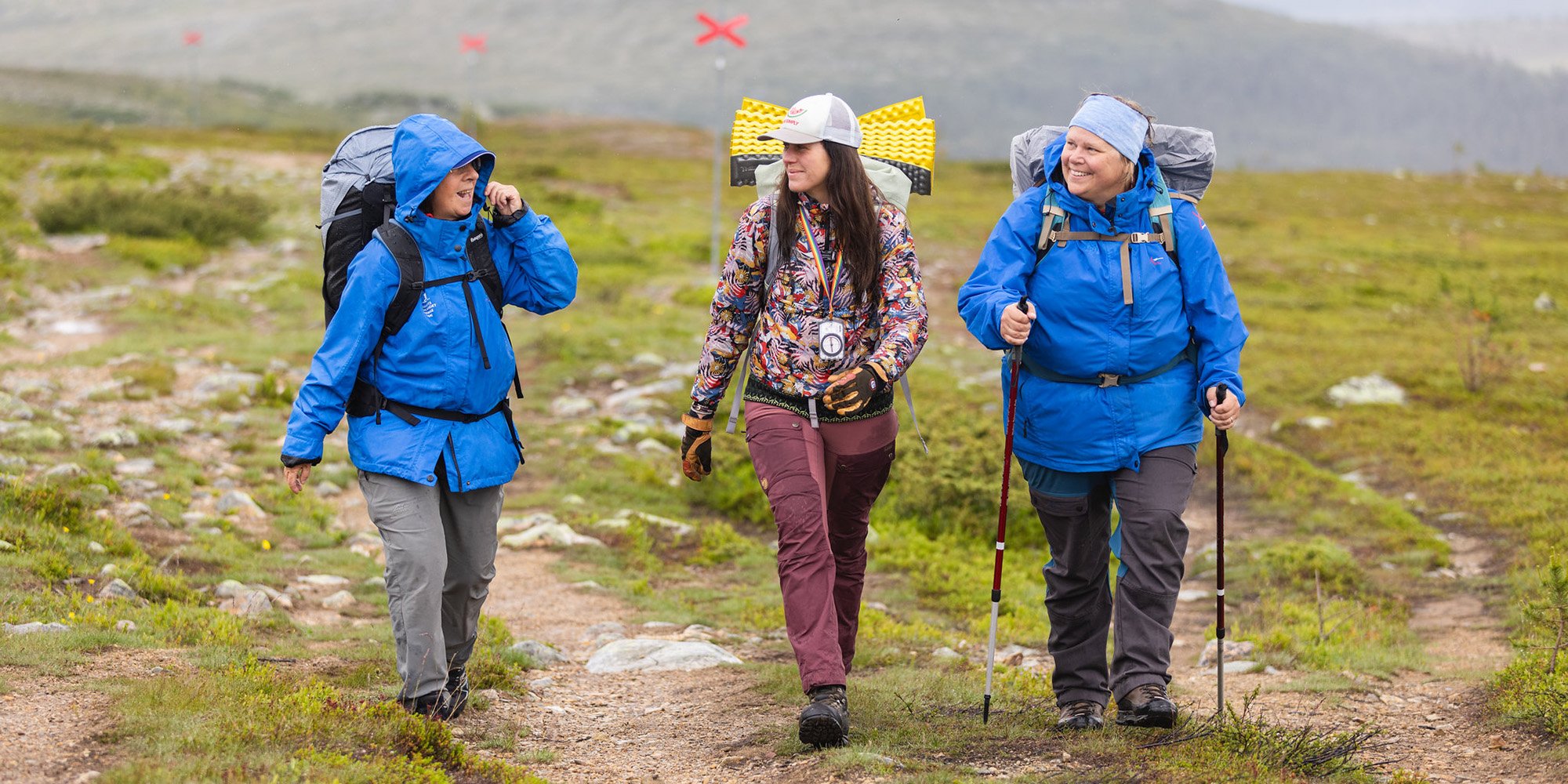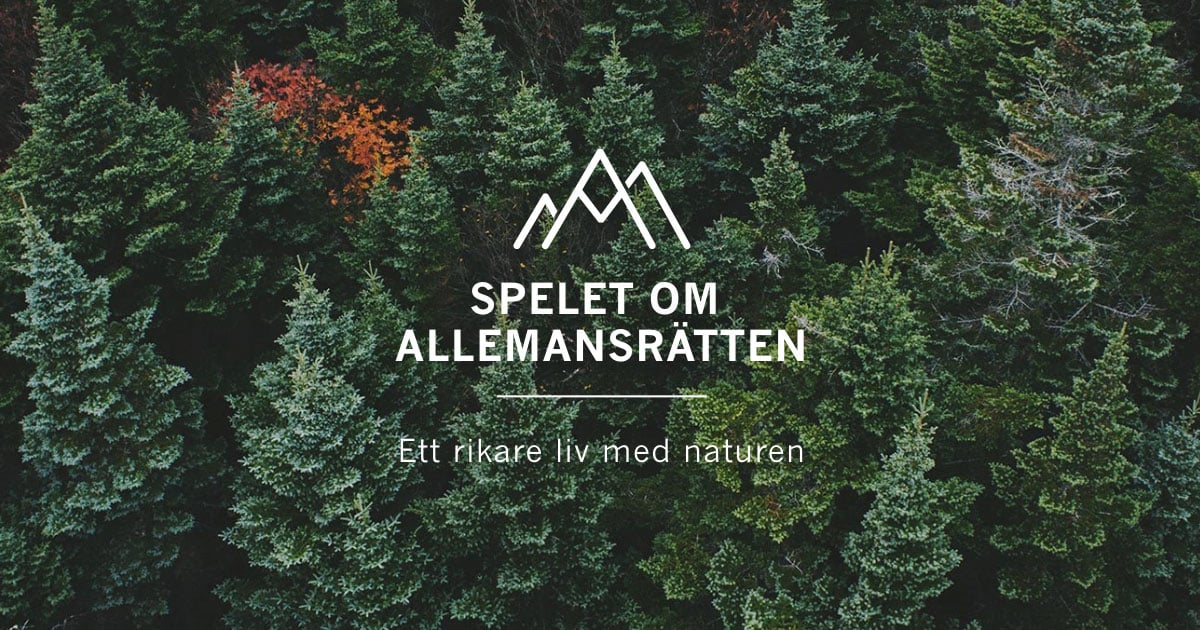[QUOTE = "Kimkim, post: 870998, member: 66480"]
...By the way, does anyone have a credible source that there are no problems with garbage in US toll parks?
And has anyone investigated how toll parks affect garbage levels in non-toll areas around?
Because usually the fee and control lead to problems being moved and in many cases even exacerbated.
[/ QUOTE]
I follow this forum from the US using Google Translate as I do not speak Swedish, but hope to trek in Sweden someday soon. (By the way, can someone translate Kamrautuppoostran from me. The computer can't) I can assure you that the same problem exists in the US and is perhaps even worse. I have read the comments in this thread and the diversity of opinions probably reflects the complexity of the problem. There is no one cause or solution. I can say that having entrance fees does not eliminate the problem. I follow the Isle Royale National Park forum too. This is the least visited NP in the US (outside Alaska) and the most expensive to visit because the cheapest way to get there is by an all day ferry trip for $250 round trip. Yet people on that forum report the same problem. The issue here is probably the "Covid Tourists" although to some degree the problem pre-date Covid. But in other cases, free access is probably the root cause. Last week, camping was banned at Max Patch because it was being trashed by campers. This is not in a park but in the National Forest so it was managed more like Sweden's Freedom to Roam model with few restrictions. Here the guilty parties were mostly local young people coming out in large groups for parties. Those of us who backpack in the the US mountains know that free access is more associated with ease of access than cost of access. The people trashing Max Patch would not be interested in backpacking 10 km to party. Closing the easy road access to such locations would probably do more than charging an entrance fee. But in the US, "freedom" is often equated with the ability to drive your private car there, so limiting access is seen as removing your freedom, which is very controversial. There is also the issue that limiting access makes wild places only accessible to able-bodied people with money. I think there is also a thread here about that topic. It is related to this problem. Education can help, but do a large degree I suspect the problem lies with people who don't want to be educated. In the US, a bigger problem than trash is vandalism. People take marking pens or paint cans on hiking trips so they can "decorate" or sign their names on natural wonders. The only consolation is that they tend to post their picture on social media so they are easy to catch. But by then the damage is done and it is much worse than trash. Trash can be picked up, but once a rock formation is toppled or a 1000 year old petroglyph destroyed, it can not be repaired. I guess that that the people who do this are not interested in being educated. In the US the management model varies from park to park. In some places there are no facilities so the impact is dispersed. This seems to work best in areas with minimal use. In heavy use areas, you are more likely to have designated camp sites. with facilities. Basically you are sacrificing a small area you know will be destroyed (that is - not wilderness) to help preserve the rest. Permit models also vary. In some parks you must have a permit for specific campsites on specific days. In other parks you get a permit for a zone but can camp anywhere in that zone. In others you must get a permit to enter the wilderness but then can go anywhere you want. It would be a shame if Sweden move toward these models. I would love to go backpacking in the Grand Canyon, but to do so I have to apply for a permit for specific campsites 5 months in advance and there is only a 50% chance that would be approved. Getting permits to Phantom Ranch or the Wave are even harder.
...By the way, does anyone have a credible source that there are no problems with garbage in US toll parks?
And has anyone investigated how toll parks affect garbage levels in non-toll areas around?
Because usually the fee and control lead to problems being moved and in many cases even exacerbated.
[/ QUOTE]
I follow this forum from the US using Google Translate as I do not speak Swedish, but hope to trek in Sweden someday soon. (By the way, can someone translate Kamrautuppoostran from me. The computer can't) I can assure you that the same problem exists in the US and is perhaps even worse. I have read the comments in this thread and the diversity of opinions probably reflects the complexity of the problem. There is no one cause or solution. I can say that having entrance fees does not eliminate the problem. I follow the Isle Royale National Park forum too. This is the least visited NP in the US (outside Alaska) and the most expensive to visit because the cheapest way to get there is by an all day ferry trip for $250 round trip. Yet people on that forum report the same problem. The issue here is probably the "Covid Tourists" although to some degree the problem pre-date Covid. But in other cases, free access is probably the root cause. Last week, camping was banned at Max Patch because it was being trashed by campers. This is not in a park but in the National Forest so it was managed more like Sweden's Freedom to Roam model with few restrictions. Here the guilty parties were mostly local young people coming out in large groups for parties. Those of us who backpack in the the US mountains know that free access is more associated with ease of access than cost of access. The people trashing Max Patch would not be interested in backpacking 10 km to party. Closing the easy road access to such locations would probably do more than charging an entrance fee. But in the US, "freedom" is often equated with the ability to drive your private car there, so limiting access is seen as removing your freedom, which is very controversial. There is also the issue that limiting access makes wild places only accessible to able-bodied people with money. I think there is also a thread here about that topic. It is related to this problem. Education can help, but do a large degree I suspect the problem lies with people who don't want to be educated. In the US, a bigger problem than trash is vandalism. People take marking pens or paint cans on hiking trips so they can "decorate" or sign their names on natural wonders. The only consolation is that they tend to post their picture on social media so they are easy to catch. But by then the damage is done and it is much worse than trash. Trash can be picked up, but once a rock formation is toppled or a 1000 year old petroglyph destroyed, it can not be repaired. I guess that that the people who do this are not interested in being educated. In the US the management model varies from park to park. In some places there are no facilities so the impact is dispersed. This seems to work best in areas with minimal use. In heavy use areas, you are more likely to have designated camp sites. with facilities. Basically you are sacrificing a small area you know will be destroyed (that is - not wilderness) to help preserve the rest. Permit models also vary. In some parks you must have a permit for specific campsites on specific days. In other parks you get a permit for a zone but can camp anywhere in that zone. In others you must get a permit to enter the wilderness but then can go anywhere you want. It would be a shame if Sweden move toward these models. I would love to go backpacking in the Grand Canyon, but to do so I have to apply for a permit for specific campsites 5 months in advance and there is only a 50% chance that would be approved. Getting permits to Phantom Ranch or the Wave are even harder.




